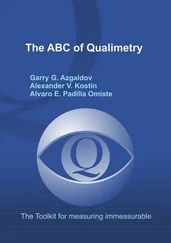“I know that,” said Mma Ramotswe. “But we have had to deal with dishonest employees, haven't we? And the simplest way of finding people like that is to see who's richer than he should be. That's always a good way of exposing somebody who's being paid to do something dishonest or who has his fingers in the till.”
Mma Makutsi contemplated this. It was, she agreed, the best first step, but would it necessarily work in this case? What if the traitor acted for some reason other than a financial one? People betrayed others, their country even, for so many different reasons: because they had a score to settle with their employer, because they were in love with somebody who wanted them to commit the act of betrayal, because of jealousy; there were as many sorts of reasons as there were sorts of people.
Mma Ramotswe saw the logic in this. “Yes,” she agreed. “It is always possible that there is somebody in the team who is feeling angry with Mr. Molofololo. Perhaps there is somebody who thinks he should be captain instead of Rops. If you were that person, and you thought that you should be playing up in the front, where all the opportunities to score goals will be had, then you might think, I'll show him. You might think that, might you not, Mma Makutsi?”
Mma Makutsi confirmed that she might. So Mma Ramotswe continued, “And what if you were a footballer who had a girlfriend and this girlfriend was stolen away by the owner of the team or even the captain? What then? You might also say, I'll show them.”
Mma Makutsi listened to this intently. The stealing of a girlfriend was not all that different from the stealing of a fiancé. And that made her mouth go dry with fear. What if Violet succeeded in stealing Phuti, as she so clearly planned to do? What future would there be then for her, for Grace Makutsi? She would never find another man, she feared, or at least she would never find one half as nice as Phuti, let alone one who had his own shop and a great number of cattle. She would continue to be an assistant detective all her days, a woman who had to watch her pennies and see other women, married women, leading more comfortable lives because they had men to go out and earn a living for them. Oh, the injustice of it; oh, the hateful, hateful thought.
She became aware that Mma Ramotswe had said something. “What was that, Mma? I was thinking of something else.”
“I pointed out that we already have a bit of help here from Mr. Molofololo,” said Mma Ramotswe. “You may have noticed that there is a tick against three names on the list. That is something that I asked him to do. And do you know what that means, Mma? Can you guess?”
Mma Makutsi could only guess that these were the ones whom Mr. Molofololo himself suspected. But no, said Mma Ramotswe, that would be too simple. “Remember what Clovis Andersen says, Mma,” she warned. “He said that you should never take account of those who may be suspected by others because that may lead you up the wrong track altogether. That is what he said, Mma. And I think he is right. So these are not Mr. Molofololo's suspects-it is something much simpler. The names ticked are those members of the team who drive a Mercedes-Benz.”
Mma Makutsi looked surprised. “Is there something dishonest about driving a car like that, Mma?”
Mma Ramotswe laughed. “Of course not. They are very fine cars, and some very honest people drive them. No, there is another reason. A Mercedes-Benz is not a cheap car. So if somebody drives one, then there must at least have been some money. So, if you are looking for signs of money, follow the Mercedes-Benz, Mma!”
Their conversation was interrupted at this intriguing point by the entry into the office of Mr. Polopetsi, the half-trained mechanic employed by Mr. J.L.B. Matekoni in the garage, who occasionally helped out in the detective agency. Mr. Polopetsi had been taken on as an act of charity but had proved himself to be a valuable member of staff, now quite capable of carrying out a full service on most makes of car and every bit as accomplished as the apprentices in handling a number of other mechanical procedures. He came in now bearing the chipped white mug from which he drank his tea.
“I see that you have had doughnuts,” he said, looking pointedly at the greasy wrapping paper on the side of Mma Makutsi's desk. “I thought doughnuts were for Friday.”
“There has been a change of policy,” said Mma Makutsi. “A forward-looking business must be flexible.”
Mma Ramotswe laughed. She was looking at Mr. Polopetsi, and she remembered that he was often rather good at shedding light on a problem. His ideas were frequently unusual but quite astute for all their unexpectedness.
“Tell me, Mr. Polopetsi,” she asked. “How would you deal with this thing, Rra?” She passed him Mr. Molofololo's list of football players. “Do you recognise that?”
Mr. Polopetsi ran an eye down the list of names and then looked up with a grin. “The Kalahari Swoopers, Mma. That's who these people are.” He pointed to one of the names. “Quickie Chitamba. He used to live out at Tlokweng, near my cousin. They saw him sometimes, driving past the house. His wife is a friend of my wife's brother.”
Mma Ramotswe gave a casual wave of the hand. “Yes,” she said. “Quickie Chitamba. I've seen him play.”
Mr. Polopetsi looked at her in astonishment. “I would never have guessed, Mma. You're interested in football, Mma Ramotswe? I didn't know that!”
“There are always new things to find out about a person,” said Mma Makutsi.
“Oh, I know that,” said Mr. Polopetsi. “It's just that I can't see Mma Ramotswe at a football match.” He closed his eyes, the better to envisage the scene. “No, Mma, I can't see you there. I just can't.”
Mma Ramotswe laughed. “And that is not surprising, Rra. I have only been once. You see, we're working on a football case now. You may smile, Rra, but that is what we're doing. We are football detectives now.”
While Mma Makutsi made Mr. Polopetsi a cup of tea, Mma Ramotswe explained the background to the Molofololo case. Mr. Polopetsi listened intently, raising an eyebrow at the allegation of treachery. When she had finished, he shook his head in wonderment. “I noticed that they were not doing very well. I thought that maybe their coach was trying new tactics, or something like that. I would never have dreamed that there was somebody deliberately losing. That is very serious, Mma. Ow!”
“So, Mr. Polopetsi,” Mma Ramotswe said. “So here are Mma Makutsi and I sitting and wondering where to start. And I said to Mma Makutsi that we should look at anybody in the team who appears to have more money than one might expect. That's always a clue, I think.”
Mr. Polopetsi scratched his head. “Well, maybe. Maybe.”
“You don't sound convinced.”
“I said maybe, Mma. I didn't say no. I said maybe.”
Mma Ramotswe pointed to the list. “You see, what we have done is to get Mr. Molofololo to mark who has a Mercedes-Benz. We can start with those ones.”
For a few moments Mr. Polopetsi looked at Mma Ramotswe doubtfully. Then he shook his head. “Because those people will be the ones who have money they're not entitled to? Bribes? Is that what you're saying, Mma?”
Mma Ramotswe sat back in her chair. “More or less, Rra.”
Mma Makutsi passed him his mug of tea and he nursed it carefully before raising it to his lips. “Thank you, Mma. This is very good tea.” He took a sip and then lowered the mug. “Absolutely not, Mma Ramotswe,” he said firmly. “You can forget about those ones.”
“Why?”
“Because football players are no fools,” said Mr. Polopetsi. “They know that they are in the public eye. They are watched all the time. People write about them in the papers. People talk. If you had money you were not entitled to, then a Mercedes-Benz is the last thing you would buy.”
Читать дальше











